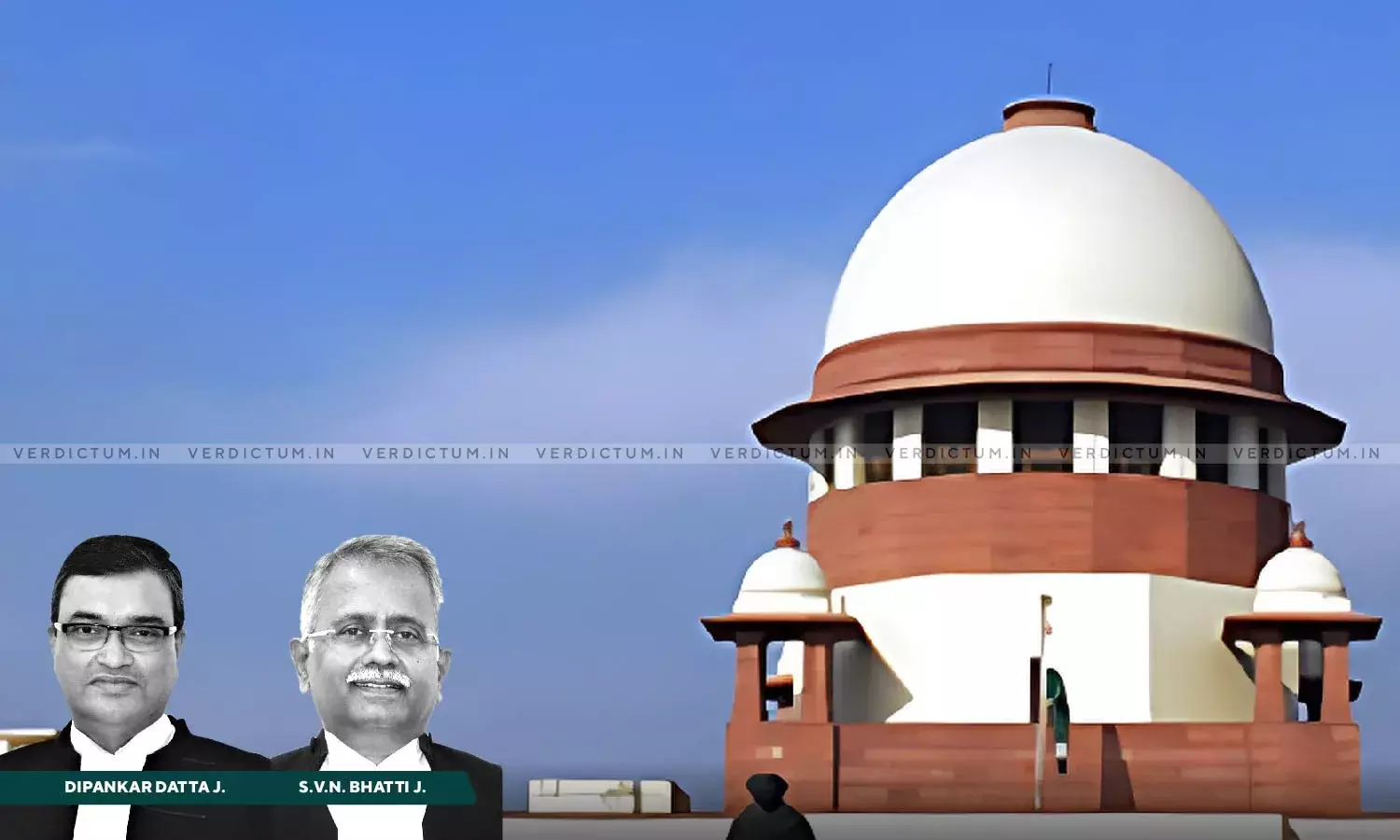Evidence Of Family Members In Dowry Death Cases Cannot Be Discarded Merely On The Ground That They Are Interested Witnesses: SC

The Apex Court observed that a family member’s evidence in a dowry death case cannot be discarded merely on the ground that they are interested witnesses.
While hearing the petition Justice Dipankar Datta and Justice S.V.N. Bhatti questioned, “ If the evidence of the family members in a case of dowry death is to be discarded on the ground that they are interested witnesses, we wonder who would be the reliable witness to testify for bringing the culprit to book. We have no hesitation in rejecting the argument as one wholly without substance”.
The matter came before this Court through an appeal against the order of the High Court acquitting the respondents (second to fifth) for the offences under Sections 302 and 201 of the IPC as well as Sections 3 and 4 of the Dowry Prohibition Act (DP Act). However, the High Court convicted the first respondent under Section 498A IPC.
AOR D.L. Chidananda appeared for the appellants and Advocate Ashwin V. Kotemath and AOR K.V. Bharathi Upadhyaya appeared for the respondents.
The court noted that, in the interest of justice, the lower court declined to consider the evidence presented by the prosecution to determine whether there was sufficient evidence to convict the respondents under section 304B, IPC.
Further, the Court held, “This appears to us inexplicable in the absence of any material in the police report suggesting commission of offence under section 302, IPC. Assuming that the Sessions Court had reason to frame a charge under section 302, IPC, it is incomprehensible why no alternative charge under section 304B, IPC was framed”.
Facts of the case:
The trial stemmed from the unnatural death of a woman, which occurred within seven years of her marriage. Her spouse was the first respondent, and her in-laws were the other respondents. The police report reveals that materials collected during the investigation pointed towards the suicidal death of a woman owing to harassment meted out to her by the respondents for not having brought with her requisite dowry at the time of marriage and even thereafter till her death.
But in the appeal, the High Court only found the first respondent guilty of the offence under section 498A of the IPC and erroneously sentenced him based on incorrect representation in respect of the period of incarceration.
Mr. Chidanand, the counsel appearing for the appellant claimed that the respondents were not charged under section 304B of the IPC and that the High Court's decision to free them was a severe injustice due to the lapse of time. Additionally, “it was the duty of the High Court to draw statutory presumption and remit the case to the Sessions Court for proceeding against the respondents to examine as to whether they are liable for conviction under section 304B, IPC”, he argued.
Further, the appellant counsel highlighted the decision of Shamnsaheb M. Multtani vs. State of Karnataka and relied heavily on this ruling and prayed to set aside the impugned judgment and order of the High Court except to the extent of recording of conviction against the first respondent under Section 498A, IPC.
“The Sessions Court while framing charge under section 302, IPC, in our opinion, did not apply its judicial mind resulting in nonframing of an alternative charge under section 304B, IPC. The High Court too failed to address the problem in the proper perspective and, thus, disabled itself from rendering justice to the parties”, the Court held.
The Court clarified that the Sessions Court would resume the trial from the point of defense evidence upon remand and the first respondent has been adequately put on notice that unless he disproves the presumption of dowry death, he is liable to be convicted under Section 304B, IPC. He shall, therefore, be at liberty to disprove the presumption of dowry death by adducing relevant evidence.
Finally, the Court directed the first respondent to appear before the Sessions Court and also granted him the liberty to seek bail. The Sessions Court shall enlarge him on bail subject to such terms and conditions as it deems fit and proper to impose.
Cause Title: State Of Karnataka By Gandhinagar P.S. V. M.N. Basavaraja & Ors

